SCHOOL OF BIOTECHNOLOGY
Degree and Title:
Bachelor’s degree in Biotechnology
Study Hours/Academic Levels:
150 credit Hours/4 academic Levels
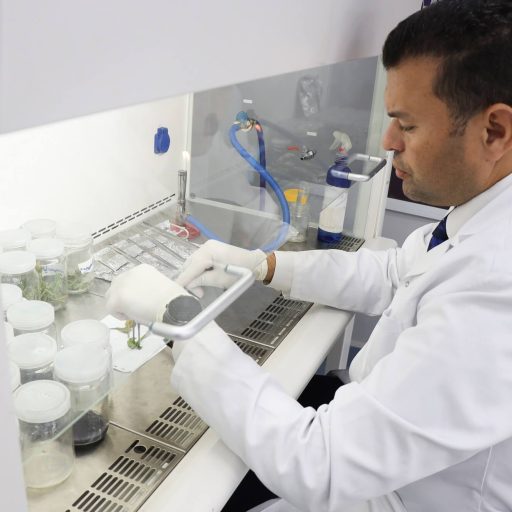

At the School of Biotechnology, we aim to teach, train, and graduate qualified, skilled scientists in many disciplines of Biotechnology through promoting a supportive learning environment for life by implementing continuous learning programs. We develop, implement, and evaluate the curriculum of the biotechnology program with a strong commitment to align and comply with the national standards.
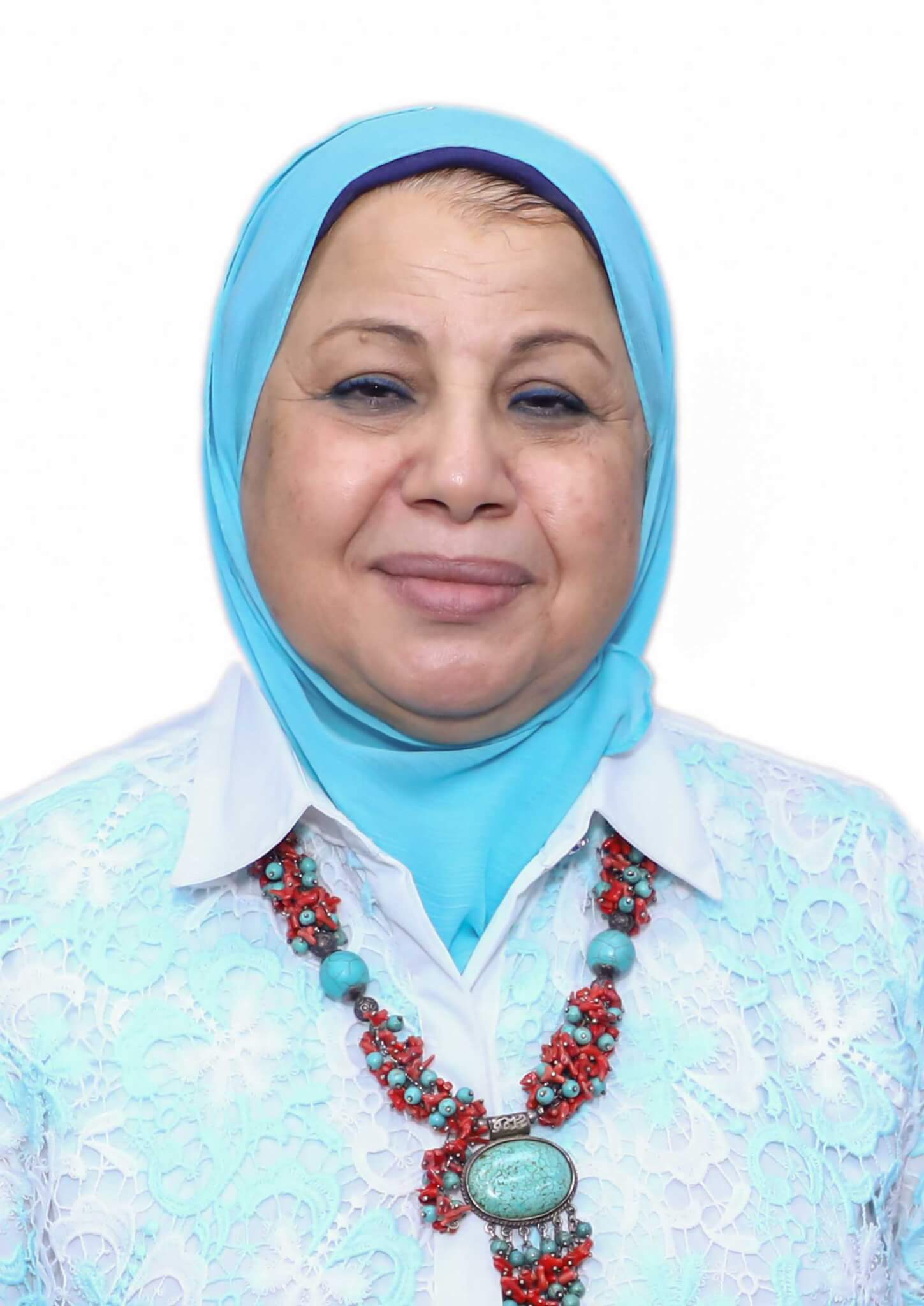
Meet the Dean
Professor Maisa Abdel Moneim
Dr. Maisa is the current Dean and previous Vice Dean of the School of Biotechnology at BUC. She has more than 30 years of organic chemistry practice and research experience.
Dr. Maisa received her Bachelor of Science from Assiut University and received her master’s and Ph.D. degrees from the same university. She has received numerous awards for research, teaching, and administrative works.
Moreover, she obtained a post-doctoral fellowship from Aachen, Germany in 2006.
She is serving as a professor of chemistry at the School of Pharmacy BUC from 2015 until now. Also, she is a professor of organic chemistry in the Chemistry Department, at the Faculty of Science, Assiut University.
Dr. Maisa attended and participated in several international and national conferences and presses and has published over 40 publications in organic chemistry.
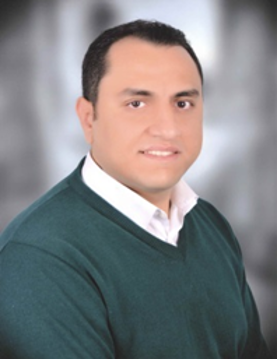
Meet the Vice Dean
Assoc. Prof. Sami Mohamed Nasr
An Associate Professor of Biochemistry and Molecular Biology, Theodor Bilharz Research Institute, a head of the central lab at Theodor Bilharz Research Institute, and a member of many committees, and currently is Vice Dean at the School of Biotechnology at Badr University in Cairo 2023 till now. He is a Faculty of Science, Ain Shams University graduate (Ph.D.) Started career in 2003 up to now. His postgraduate studies were in Molecular Biology (Ph.D.) at Rochester University, Biomedical Engineering dept., New York, USA. He has been carrying out research work on Recombinant pharmaceutical protein production for 21 years. He has been involved in research topics on: Biochemical and Biophysical Studies on Recombinant Human Growth Hormone expressed in a Prokaryotic System. At the academic level, he is teaching many courses like Molecular Hematology, Cellular and Molecular Biology, Medical Biotechnology, and Genomics and Proteomics. He has shared and worked as PI and Co-PI in many research projects sponsored by international and national agencies. He supervises many scientific theses in various scopes. He was awarded in 2003 for Academic excellence of the Best Bachelor’s Achievers from the President of the Arab Republic of Egypt, Mohamed Hosny Mubarak, and the Minister of Administrative Development.
Dean’s Word
Professor Maisa Abdel Moneim
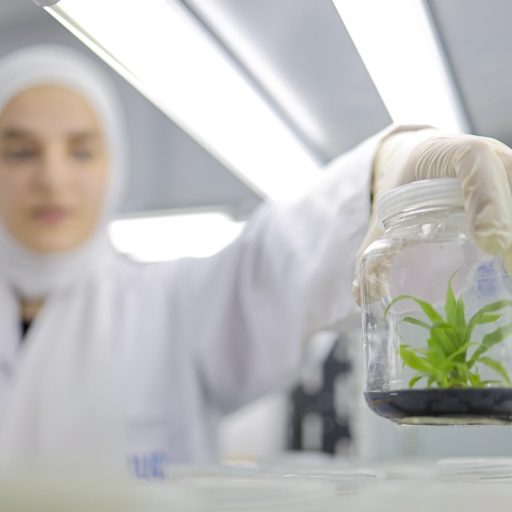
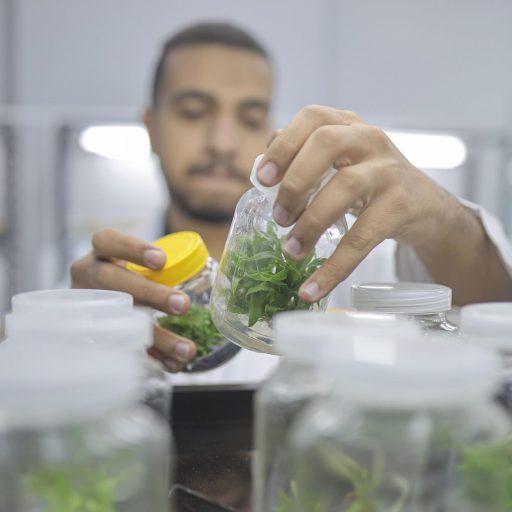
Dean’s Word
Professor Maisa Abdel Moneim
It gives me much pleasure to welcome you to our School of Biotechnology, one of the leaders in biotechnology education, research and services. Biotechnology has emerged as one of the leading future-oriented disciplines worldwide. It is a key element of pharmaceutical production, biomaterials, etc., and contributes to a sustainable production and environmental protection covering a wide spectrum of vital and indispensable specializations.
Biotechnology has applications in various areas, such as in health care (Medical Biotechnology), drug manufacturing (Pharmaceutical and Nano Biotechnology), crop production and agriculture (Agricultural Biotechnology), and enzymes and biofuel production (Industrial and Environmental Biotechnology). The School of Biotechnology also gives students the opportunity to study and work in the fields of genetic engineering and stem cells. Our dear students, you are the real wealth of the country, the scientists of tomorrow, and leaders of the future as well as the active energy for our beloved Egypt. We invite you to explore our mission and programs and to learn more about our school and community.
Strategy
our Vision
our Mission
Object- ives
School of BIOTECHNOLOGY
Council
Prof. Maisa Omara
Dean
Assoc. Prof. Sami Mohamed Nasr
Vice Dean
Assoc. Prof. Ahmed Hassan
Head of Medical Biotechnology Department
Assoc. Prof. Reda Mansour
Head of the Molecular Biology and Biotechnology Department
Coordinator of the Medical Biotechnology Department
Assoc. Prof. Mohamed Ali
Head of the Pharmaceutical Biotechnology Department
Coordinator of the Pharmaceutical Biotechnology Program
School premises
An IT lab with 20 PCs, 1 photocopier and 2 data Show with mini PCs.
The classrooms are well equipped with comfort seats, a whiteboard, a data show device, a display screen, a microphone, headphones, Wi-Fi, and central air conditioning.
The central library, based on Campus, includes a large number of updated books in different biotechnological fields and publications set out in a relaxing environment, conducive to studying. There are several computers connected with internet to apply different searches with access to e-libraries. There are comfortable seating areas, group study areas, a silent study area and private study rooms.
There are central halls and stands at the university that can be used when necessary, and they are all equipped for cultural, artistic and sports activities
The university offers a learning management system (LMS) for enhancing learning needs in all areas, assignment, examinations and student registration attendance.
The university offers health care facilities through well-equipped health care clinics (general clinics, dental care clinics and physiotherapy clinic). There is a diverse food court offering cold and hot snacks as a small area offering a variety of groceries and cold snacks. In addition, there is a copy center, a bank and a flower shop.
LABORATORIES
& WORKSHOPS
Microbiology labs
8 labs are especially equipped to fulfill the needs of studying biology, including Bunsen burners, electric flames, electric water baths, centrifuges, autoclaves, incubators, spectrophotometers, microscopes, PCR, centrifuges, luminar flow, and others.
Chemistry labs
4 labs are especially equipped to fulfill the needs of the study of the different branches of chemistry, including: organic &inorganic chemistry, biochemistry. The labs include electric flames, centrifuge, spectrophotometer, electric water bath, pH meters, and others.
Biophysics & Data Science Labs
2 labs are especially equipped to fulfill the needs of studying biophysics, including spectrophotometers, electric water baths, centrifuges, stirrers, photometers, vortex ammeters, digital thermometer, digital balance and others.
Biology labs
Molecular biology Cell biology Immunology Cell cultures
Chemistry labs
Our labs prepare our students to use different chemical compounds and apply it to different industrial application.
Biophysics & Data Science Labs
Our labs learn our students to handle electric instruments and analyze data with a brief discussion.

